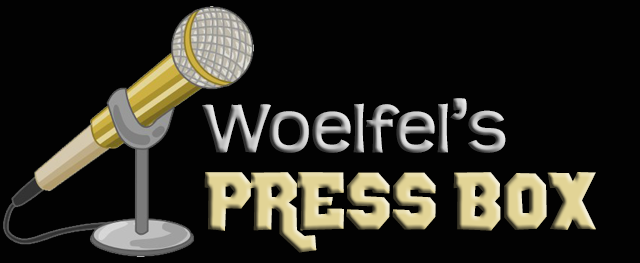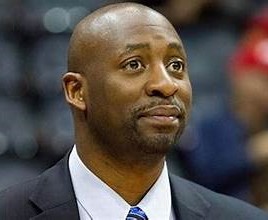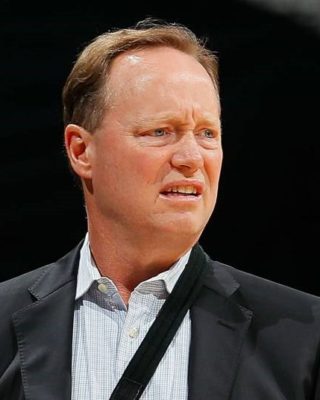Bucks Jason Terry Is A Straight Shooter: Part I
Jason Terry has been around the NBA block.
The 39-year-old Terry has been in the Association since being the 10th overall pick in the 1999 draft. Terry, now in his 18th pro season and first with the Milwaukee Bucks, recently chatted about his lengthy and entertaining career, touching on a myriad of topics, including the virtual demise of trashing-talking, his championship season with the Dallas Mavericks, his hilarious on-court encounter with a player he didn’t know and so much more.
Here is the first of a two-part series with Terry:
Now being one of the NBA’s senior citizens, did you in your wildest dreams expect to play this long?
JASON TERRY: You know, when I first started, I set out to play 20 years. That was my goal.
Seriously? 20 years?
JT: Yeah, that’s what I envisioned. I love the game that much. I feel that, at this age, I’m still young. I really take the approach of Tom Brady, Big Papi (David Ortiz), guys like that in other sports. I watch how they do their routines and how they take care of their body off the field or off the court.
And I played with Jason Kidd. He was a guy who played well beyond the years of expectations. Gary Payton played until he was 38 or 39. These are all guys I idolized. John Stockton. Guards usually tend to have shorter life spans in the NBA, but every once in a while, there are guys like myself, who are a rarity. I have so much to give to the game, and I’m still able to get up and down with the young fellas and play at somewhat of a high level. That’s why I enjoy it.
Do you think there’s an attitude or mind-set among players today that they can play longer than players of the past? It seems like more and more guys are now pushing the envelope and believing they can play until they’re 40 or older.
JT: I will guarantee you that, if you ask a lot of those guys that quit right after their prime or a little earlier than they should have, they’ll tell you they regret it. They wished they had played three or four more years. And they could have played longer. I heard James Worthy say the other day ‘I just left early; I was at the top of my game. And I wished I would have played three more years and got it out of me because there was something that I missed when I retired.’ I want to leave it all out there. I want to be drained, I don’t even want to move for three months after I finished my last NBA game. That’s just the way I am.
Quick quiz: Do you know how many guys from your 1999 draft class are still playing?
JT: I think Mano Ginoboli may be the only one. Was he in that 99 class? Ron Artest, if he keeps playing for the Lakers. That’s all I know. Oh, and, there was Elton Brand (who was just cut by Philadelphia) out of the lottery guys. That’s it.
In all of these years you’ve been in the NBA, what’s been the biggest change?
JT: Since I came in, I’ve seen three different transitions. When I came in, it was all about the bigs. After about three years, it was about the power forward who could shoot. A stretch 4. It was Kevin Garnett, Dirk Nowitzki, Tim Duncan. That era. Antonio McDyess, Amar’e Stoudemire. Now you have the perimeter shooters, the guys who space the floor, who can shoot at a high percentage from beyond the arc. That’s the era we’re in. The big man is not utilized as much as before as far as being a dominant, physical inside type. It’s more of a finesse game now, passing, moving.
Who are the five best players you have played against in your career?
JT: There’s Kobe Brant. Kobe is No. 1. Allen Iverson. Stephon Marbury. Steve Nash. That’s four. And I’ll say Gary Payton because, even after his prime, he ended up in Miami and stole my (2006 title) trophy and I’m still pissed off at him about that.
Speaking of championships, you got your first and only NBA championship ring with the Dallas Mavericks in 2011. What’s your fondest memory of that championship season?
JT: I just thought my fondest memory of that season was everyone’s unique journey or their road to getting to that point. If you looked at our team, and how it was assembled, Jason Kidd had been to the Finals twice and didn’t win. Myself and Dirk had been there once, didn’t win. Shawn Marion had gotten to the Western Conference Finals but didn’t get to the Finals. Tyson Chandler, very similar story. Caron (Butler) and DeShauwn (Stevenson) were outcasts from Washington and Brendan Haywood couldn’t get over the hump, couldn’t beat Cleveland.
But it meshed in a crazy way that season. You had a guy in Rick Carlisle, who was like the mad scientist, who put all those different pieces in a pot and stirred it up and like, ‘Oh, yeah. OK. It does make sense to have a veteran-laden team with a ton of experience, players who had been through the wars, who are hungry for a championship.’ It just made sense.
Earlier in that season, Butler blew out his knee against the Bucks in Milwaukee and a lot of observers thought the Mavericks’ hopes of a title were dead in the water. How were the Mavs able to overcome that setback?
JT: We knew we were a deep team coming into training camp. There was fierce competition at all the positions to solidify a role on the team. We got off to a great start; I think we were 30-something and 5 and Caron went down. We had other wing players: Corey Brewer and DeShawn Stevenson, Peja Stojakovic and J.J. Barea and Roddy Beaubois and we did it by committee for a while. And then Deshawn fell into Caron’s position.
You couldn’t substitute what Caron brought to the team: his toughness, his scoring ability but, by a committee with different skill-sets, we were able to fill that void. And Caron still did a hell of a job. While he was rehabbing, he always stayed around, always encouraged guys. He was a tremendous part of the chemistry we had in that locker room. He kept everyone together when times got tough.
You are quite gregarious, always seem to be upbeat and have a marvelous sense of humor. Have you had these traits your whole life?
JT: I think it’s just my upbringing. I’m one of 10 children, second oldest. In my household, when there were days of adversity, the way we got through them was to laugh. We laughed together as a family. So I had to use my spontaneousness in certain situations. I wasn’t the best athlete, either. I had to work hard to achieve the status I have. Sometimes I got embarrassed out on the court and, when I felt I was embarrassed, I would kind of joke to keep the attention off of me and my performance. I would never say a joke about anybody else. It was more about me.
Do you consider yourself a classic trash-talker, like some observers contend?
JT: Oh, yeah. All day. For sure.
Do you consider yourself one of the best thrash-talkers in the league?
JT: I definitely am. I’m definitely considered one of the best. But I learned from the best. Gary Payton is my idol. Where I grew up playing basketball (in Seattle), where they don’t today – which is out on the playground and that’s the best place to do that – that’s where it started, that’s where it evolved, back in high school in Seattle. And then to grow up in Seattle and be around the Sonics when I was in high school and to be able to work out and train with them, I picked up all of those habits. Detlef Schrempf, Gary Payton, Dale Ellis, Xavier McDaniel. These are some major league thrash-talkers, instigators, some of the best we’ve ever seen in our league. I had to pick up some of that from them.
Who would make your all-NBA trash-talking team today?
JT: Ah, man. You know these guys today are so different now. But Draymond Green is one. Um …. Let me see. Goodness gracious, he may be the only one who still talks. Everybody is so paranoid about what someone is going to say. I don’t know if it’s a situation where guys don’t want to hurt other guy’s feelings. But, again, it’s never personal. It’s all in the friendly competition. You know … I don’t even know if there are four other guys to make a top five. Wait. Paul Pierce is still playing. That’s two. Ah … you know it’s tough. Oh, and Patrick Beverly is on the team; he talks all game. … But that might be it. The game has really changed.
So, with such little trash-talking going on now in the NBA, as you contend, are you thinking about giving it up?
JT: No. I’m still a 100 percent trash-talker. I think it’s even more part of my game now that I’m not as quick as I once was. I use it to throw off my defender a lot of times. Or, if I’m guarding you and you have a step on me, I might say, ‘Let me talk to you a little bit. And get into your head, so that move you thought about doing, you might not make that move now.
What was your funniest trash-talking moment?
JT: I think last year I had my greatest trash-talking moment in my history. We’re in a blowout game and the subs have come in, the second teamers, even third-teamers, guys who wouldn’t ordinarily get into the game. As a veteran, I pride myself on knowing other guys. I look at the scouting report to know personnel. I want to believe we were playing Phoenix and a kid checks into the game and I look and I didn’t recognize him. And, I’m thinking, ‘Well, I’m getting older. Maybe he went undrafted or something.’ So, I told the kid, ‘Hey, young fella, turn around. I want to see the name on the back of your jersey. I don’t know who you are. Let me see.’ And he does and I say, ‘Oh, OK. Good. I got you.’ And their whole bench started cracking up. And, you know what? I still don’t know the kid’s name.
I felt bad for him because all his teammates were laughing. He didn’t make a shot in that game, either.
Part II: Terry talks about the presidential candidates, offers his opinion of the national anthem protests and makes his prediction on who’ll be in the NBA Finals.
Photo by Bill Tennessen



